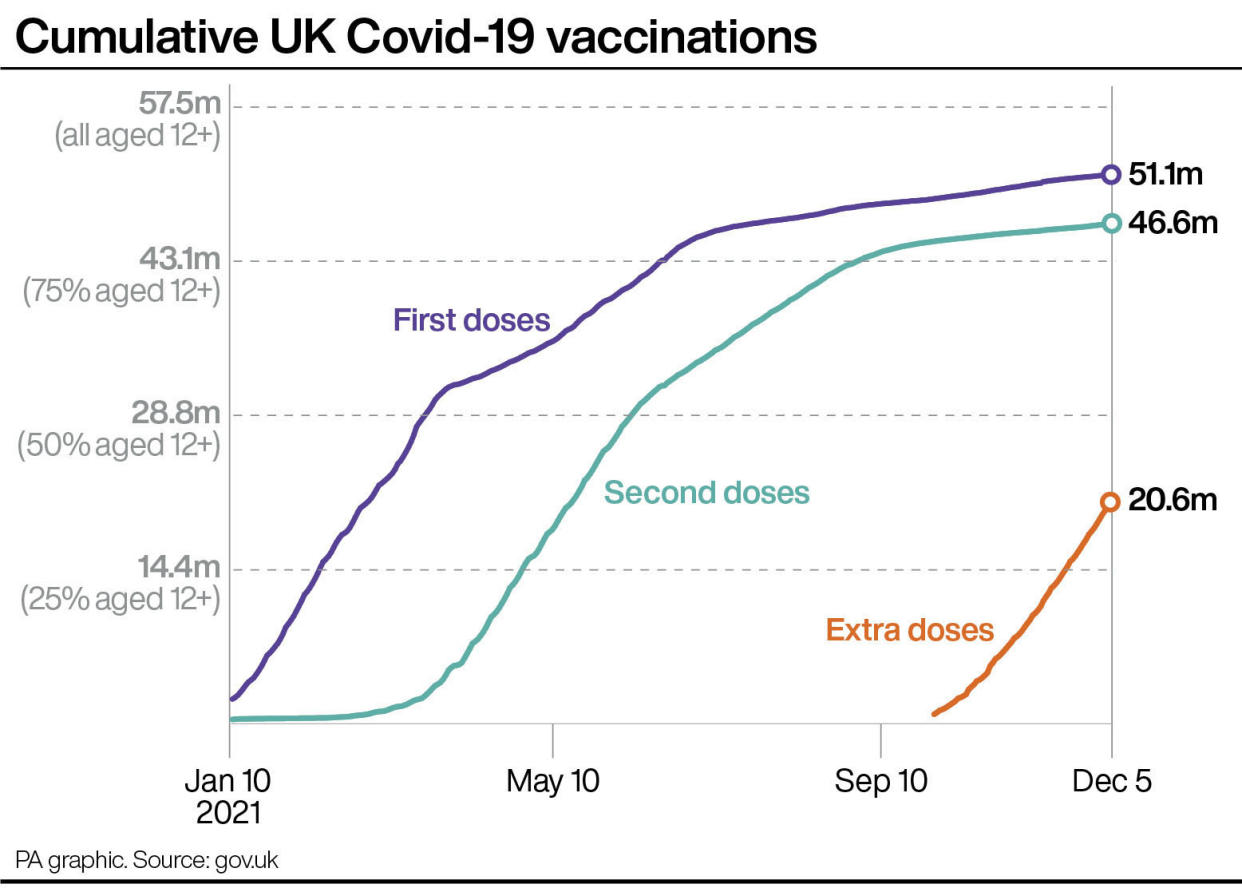Omicron cases 'doubling every two days and could be as high as 2,000', warns expert
Omicron cases in the UK will double every two days, a Covid expert has warned.
Professor Tim Spector, who leads the ZOE Covid Study app, said there could be as many as 2,000 cases of the new coronavirus variant in the UK, despite official figures placing the number at 336.
The professor of genetic epidemiology at King’s College London said that many Omicron cases are being missed because the symptoms are more cold-like.
He said that only about 35 to 40% of PCR tests are processed at labs that can pick up the Omicron variant.
Prof Spector also criticised the government’s new travel restrictions, which came into force on Tuesday and require travellers to take a Covid test within 48 hours of travelling to the UK.
He said the UK could have more cases of Omicron than some countries on its own travel red list in about 10 days.
“The official estimates are about 350-odd Omicron cases, and because the current testing is missing a lot of those, it’s probably at least 1,000 to 2,000 I would guess at the moment,” he told BBC Breakfast on Tuesday.
“And we are expecting this to be doubling about every two days at the moment, so if you do your maths – say assumed it’s 1,000 at the moment, and you think it’s going to be doubling every two days, you can see that those numbers are going to be pretty (high) certainly in about 10 days time.
“By that time, we’ll probably have more cases than they will in some of those African countries.
“So I think these travel restrictions do perhaps have their place initially, when cases are really low here and really high in the other country, but when we reach that equilibrium, there’s very little point in having them in my opinion.”

He said data from the ZOE Covid study app suggests that Omicron symptoms are more similar to a cold, rather than the “classic” coronavirus symptoms of a high temperature, new continuous cough or a lose of sense of taste or smell.
“Omicron is probably more, much more similar to the mild variants we’re seeing in people who have been vaccinated with Delta than anything else,” he said.
“And so it is going to be producing cold-like symptoms that people won’t recognise as Covid if they just believe the official government advice.”
Asked if Omicron could infect more people but make fewer people sick, Prof Spector said: “If we assume that it is not more severe and possibly milder than Delta, but it’s much more transmissible… it means that perhaps twice as many people are going to pass it on from when someone gets it in a crowd.
“That’s going to be good news for the individual because we have fewer cases going to hospital, and partly this is due to our high vaccination rates.
“But it also means that eventually you will get more deaths and problems, because nearly everyone is infected or reinfected.”
Dr Jeffrey Barrett, director of the Covid genomics initiative at the Wellcome Sanger Institute, said he thought Omicron would take over from Delta in the UK as the dominant variant of coronavirus “within a matter of weeks”.

He told BBC Radio 4’s Today programme on Tuesday: “I think we can now say that this variant is spreading faster in the UK than the Delta variant at the same time, and that’s something that I think was unclear until very recently.
“I am pretty confident that it’s going to take over (Delta) probably in a matter of weeks.”
On Monday, health secretary Sajid Javid said the Omicron variant was spreading within communities, rather than just being linked to international travel.
The new travel rules mean anyone travelling to England from countries not on the red list will be required to take a pre-departure test a maximum of 48 hours before leaving, regardless of their vaccination status. If they test positive, they will not be allowed to travel.
Scotland and Wales have said they will implement similar measures.
All of the nations on the UK’s travel red list are in Africa, with Nigeria added to the list from Monday.
Only British and Irish nationals may travel from a red list country to the UK, and must quarantine on arrival in England for 10 full days in a managed hotel and take two Covid tests in that period.
Watch: Boris Johnson says UK first country to act decisively on Omicron


